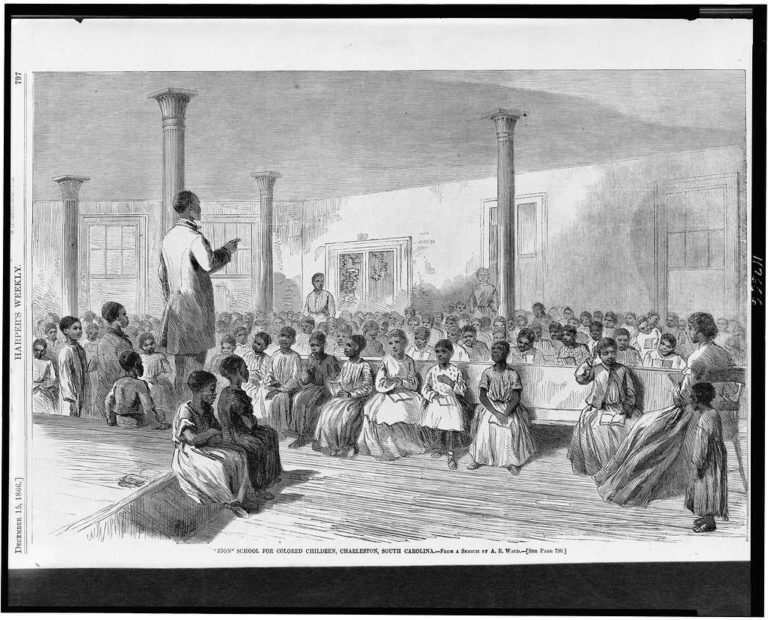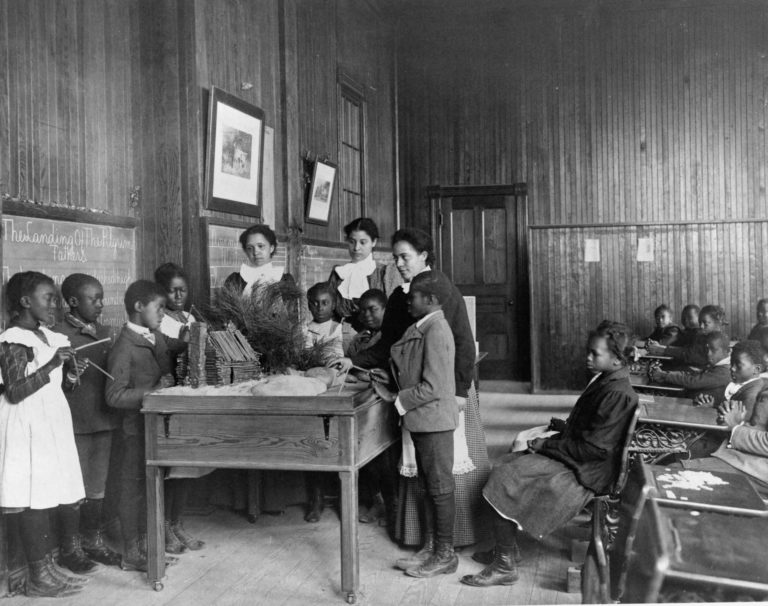“Education is our passport to the future, for tomorrow belongs only to the people who prepare for it today.”
Denmark was liable for 2.3% of the entire slave trade between the 1660s and 1803. While the country can praise itself as the first colonial power to abolish slavery in 1792, despite continuously trading slaves internally until 1848, Denmark ensured the dispossession of 120.000 African children, mothers, and fathers from the Gold Coast to the Danish West Indies. Yet, this expansive legacy lasting more than 150 years was covered by merely one week of history lessons in the span of my first 12 years of elementary education. But don’t despair: We did spend several weeks, if not months, learning the success of Western participation in defeating Nazi Germany and its racist practices during World War II.
My experience is not beyond the norm.
There is a divide in education, a subtle colour line, which veils the legacy of white, European powers and their relations to the non-white others. Not only has the veil kept non-whiteness at bay and rejected access to knowledge, it has distorted white heritage of violence against the peoples within Africa and those in diaspora, enduring the enforcement of racial inequality and supremacy.
Educational Legacy of “No Blacks — Whites only”
The legacy of racial segregation in education, a long-lived reality, is a history of defining terms of access to education along racial lines.
The earliest traces of denied access to knowledge already occurred upon the first encounter between white and black. As the practice of stealing, enslaving, and trading Africans in the New World began, slave masters swiftly enforced anti-literacy laws. Knowledge did not belong on the non-white side of the colour line. As scholar Heather Andrea Williams put it:
“Masters made every attempt to control their captives’ thoughts and imaginations, indeed their hearts and minds.”

The common conviction amongst slave owners contended that the ideal approach for maintaining white supremacy depended upon the masters “being able to speak for the slave, to deny his or her humanity, and to draw a line between slave consciousness and human will.”
Denying access to education was a fundamental premise of enslavement that endured even beyond emancipation. But the enslaved desired literacy, education, and the freedom that came with these. In the words of a freed slave, quoted by James Anderson, “there is one sin that slavery committed against me, which I will never forgive. It robbed me of my education.”
Preceding the abolition of slavery in America, literacy remained deeply desired. It was the preeminent gateway to self-determination and freedom. Illegalizing slavery would not suffice — intellectual liberation was needed.
Related Articles: How Racist is the American Political System? | Tackling Systemic Racism and Our Biases through Empathy
The formerly enslaved rapidly mobilized and constructed a system of “native schools.” African American women were the forerunners of the movement for education and literacy, which commenced in 1833. The Republican Congress and its agency, the Freedmen’s Bureau, supported this movement. But there was a white retaliation. Widespread campaigns emerged against the taxpayers’ money funding the education of the black community, and the Freedmen’s Bureau temporarily closed all black schools as a consequence. Regardless, the formerly enslaved persevered and maintained their education.
Whiteness hoped that by rejecting education freed peoples would not achieve the economic productivity whites feared they might. That would simply grant them aspirations that would run counter to their being plantation laborers. Others contended that through education, former slaves could potentially transition into an efficient labor force for the benefit of white industrialists.
Whiteness continued to miseducate the former slaves, perpetuating their ideal of maintaining blackness’s position as a lower-class through segregated forms of schooling. Schooling continued to be a segregated practice through the 19th century until mid-20thcentury, and African Americans were consistently denied access to the same standard of education as their white peers. But the black community consistently upheld its rightful claim to education.

A Distorted Image — Educating Whiteness and Demolishing White Supremacy
Up until the Civil Rights Movement of 1964 and the Brown v Board of Education lawsuit in 1954, the fight for racial equality had been a battle for access to education and to end segregation. Once outlawed, the battle for equality in education transitioned into a battle for truth.
The Black Panthers emerged at this time and demanded education. As their founding leader, Bobby Seale, proclaimed:
We want decent education for our black people in our community that teaches us the true nature of this decadent, racist society, and to teach black people… their place in society.
The leaders of black liberation in the years following the Civil Rights Movement knew the value of education. They demanded “education that teaches our true history and our role in the present day society,” for without knowledge, how could change ever be enacted?

Whiteness and its privilege of education had always been at an advantage. Not only had they never been denied access to schooling based on race but a higher standard of education was consistently at their disposal that would ultimately grant admission to better opportunities for wealth and prosperity.
Advanced quality education was primarily for whites, while black communities were offered elementary education with civilizing motives and the purpose of making them more efficient low-class laborers. Even today, schools in America remain racially homogenous and there is a widening gap in achievement in terms of race.
Education has continued to be a facilitator of white supremacy. Rooted in a white monopoly on educational institutions, a myth of meritocracy and an epidemic of racial illiteracy have plagued American and European educational systems. This has upheld white supremacy, which conveys the success of whiteness and distorts the legacy of racial violence and inequality.

The truth about the racial legacy that constituted white wealth and supremacy remains a distorted image of the past. In the words of author and activist, Cornel West:
The condition of truth is to allow suffering to speak. One of the forms of suffering I have been deeply concerned about is the suffering that flows from the vicious legacy of white supremacy.
American School curriculum, as well as British, or in my case, Danish, do not have an academic standard for the content taught in social sciences. This negligence causes ignorance as the legacy of slavery, of segregation and of racial violence is absent in our elementary education. Such ignorance impedes the steps of demolishing white supremacy.
Without understanding the nuanced imagery of Western history and the role of Africans in every important step of its evolution, we will never fully comprehend the depth and gravity of the issue when we demand racial equality.
Education is empowerment. Racial equality is an educational journey to pursue, and white supremacy will never be dismantled nor will equality be upheld if we are not fully educated about the history of the privilege, wealth, and success that whiteness rests on today. Only then will we understand why racial inequality cannot and will not prevail.
Editor’s Note: The opinions expressed here by Impakter.com columnists are their own, not those of Impakter.com. — In the Featured Photo: Student at graduation. Feature Photo Credit: Andre Hunter










